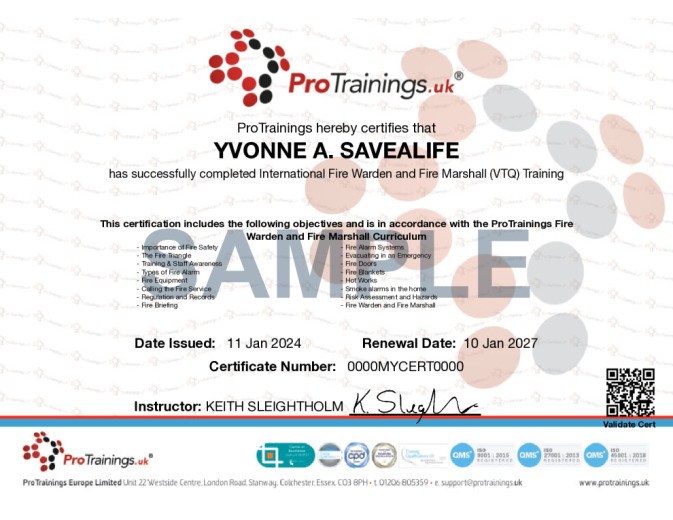International Fire Warden and Fire Marshall (VTQ)


International Fire Warden and Fire Marshall (VTQ) at a glance
- 3-year nationally recognised certificate
- 2 hours and 0 minutes of engaging video training
- Video access for 8 months
- Printable wall certificate
- CPD time credit conformation
- Free weekly video refresher
- Evidence Based Training certificate
- Videos include subtitles
This level 2 course is aimed at anyone who requires a course as a Fire Warden or a Fire Marshal. The course covers the latest fire safety regulations and the roles and duties of employees and their responsibilities on Fire Safety. The course is designed to meet and comply with the Regulatory Reform (Fire Safety) Order 2005 which is a strict of guidelines which exceed international guidelines in fire safety. It covers how fires are started, methods of controlling fire spread, evacuating the building, fire briefings and risk assessing.
The content of this and all our courses has been independently certified as conforming to universally accepted Continuous Professional Development (CPD) guidelines and come with a Certified CPD Statement as well as a ProTrainings Certificate and for online courses an Evidence Based Learning statement.






